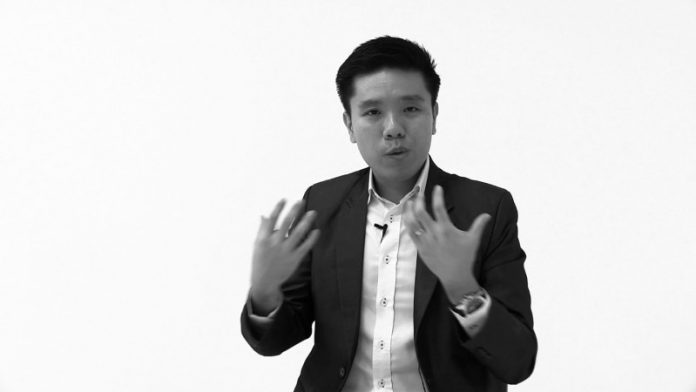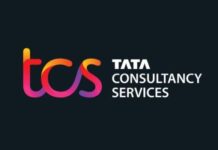In 1991, authors William Strauss and Neil Howe, introduced their book, ‘Generations’, which laid the foundation for decades of conversations and analysis around what went wrong (and right) in the study of generational biographies.
What started as an insightful study of the historical development of the United States (US), recurring themes and turning points of American history, pop and cultural symbols, purported core values and attributes have now, led to dozens of literature and media articles playing up generational stereotypes.
Nine years later in 2000, Strauss and Howe published ‘Millennials Rising’ to denote the generation of people between birth years of early 1980s to 2000s, who are typically now in their late teens to mid thirties. Whereas, the Generation X, is defined as people who are born in the prior 20 years cycle between the 1960s and 1980s.
According to Strauss and Howe, the birth years are not as significant as each generation’s “coming of age” which is heavily influenced by “trigger events” like the Assassination of John F. Kennedy for the Baby Boomer Generation for example.
Yet, this fundamental position still begs the question of how pervasive are these events to people growing up and outside of the US? Can we categorically describe and hence, prescribe ways of dealing with and managing groups of people in our global context, by sheer virtue of when they are born?
Or probably the million-dollar question in the minds of most modern-day managers and executives,
“Whatever happened to this generation of kids?”
Perhaps, the most iconic and memorable piece on Millennials was published in the May 2013 edition of the Times Magazine.
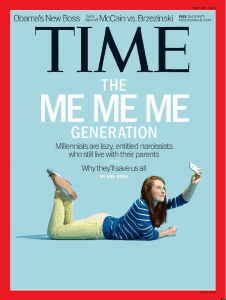
While the cover of the magazine looks deceptively reminiscent of the common stereotypes of Millennials, the article by Joel Stein actually reads to be more grounded, objective, and positive, “So, yes, we have all that data about narcissism and laziness and entitlement. But a generation’s greatness isn’t determined by data; it’s determined by how they react to the challenges that befall them. And, just as important, by how we react to them. Whether you think millennials are the new greatest generation of optimistic entrepreneurs or a group of 80 million people about to implode in a dwarf star of tears when their expectations are unmet depends largely on how you view change. Me, I choose to believe in children. God knows they do.”
The Missing “Gap” of Awareness, Care, and Empathy (ACE)
Having conducted over 100 talks, presentations and panel events around generations and some solely around Millennials at the workplace over the past 5 years, I can safely surmise that many managers I’ve interacted with lie between two ends of a spectrum.
At one end of the spectrum lie managers who relate to Millennials as the problem. They are obstinate and insistent that Millennials are starkly and dramatically different from their generation and are consciously widening the relational gulfs between them.
It is interesting to note psychologists term the tendency for humans to categorize and affix meanings to objects and people especially when we struggle in highly complex environments as “categorical labelling”. While this is a coping mechanism in the world we live in, the practice of blatant and indiscriminate labelling of people based on loose indicators can sometimes be a self-fulfilling prophecy.
On the end of the spectrum, lies what I would term as enlightened managers. They are aware of the operating biases, which can be defined as, “prejudice in favor of or against one thing, person, or group compared with another usually in a way that’s considered to be unfair.” (Office of Diversity and Outreach, University of California, San Francisco).
Whether they may be explicit (conscious) or implicit (unconscious) biases, enlightened managers know that the people that they manage are inherently different. While generational studies are generally helpful in painting out broad strokes of defining characteristics of each and every generation, they know that their people deserves specific strokes of Awareness, Care and Empathy (ACE).
This is the “gap” that differentiates truly enlightened managers from those who are just indiscriminate about the way that lead and manage people.
What is the research telling us?
In a 2017 report with almost 8,000 millennials across 30 countries in the 2017 Deloitte Millennial Survey, “high-potential millennials” (24% of which, being in senior positions already) were asked about their sentiments about the future of business, views and beliefs on automation, rising expectations they have on and from their employers among many other focal points.
Here are two big themes that managers will be keen to note:
- Business Beyond Profits
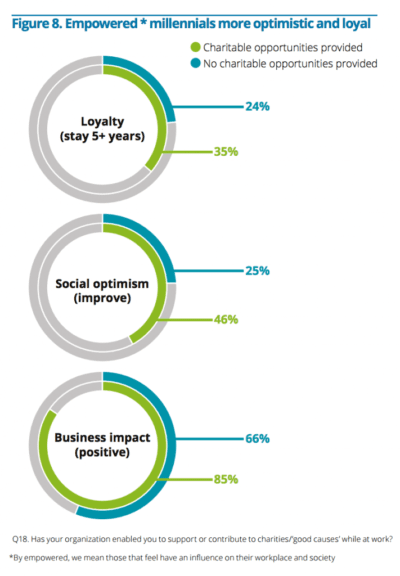 “This year, as we have recorded in each and every one of our millennial surveys, almost nine in 10 (86%) believe the success of a business should be measured in terms of more than just its financial performance.” Above and beyond an “employer branding tool”, a corporation that gives and gives of its resources in an aligned and relevant manner vis-à-vis their business mission tends to inspire more loyalty among its people and potential, its Millennial employees. Image credits: 2017 Deloitte Millennial Survey)
“This year, as we have recorded in each and every one of our millennial surveys, almost nine in 10 (86%) believe the success of a business should be measured in terms of more than just its financial performance.” Above and beyond an “employer branding tool”, a corporation that gives and gives of its resources in an aligned and relevant manner vis-à-vis their business mission tends to inspire more loyalty among its people and potential, its Millennial employees. Image credits: 2017 Deloitte Millennial Survey)
The key here is to ensure that your Millennials have a certain degree of ownership, partnership and involvement in the “giving activities” instead of just communicating “giving dollars” in your corporation’s income statements.
LinkedIn for Good, the social impact arm of business and social networking giant, LinkedIn, is a prime example of how their employees can partake in myriad impact programs like strategic volunteering and charitable giving.
2- Flexibility as a Driver to Adapt to Change
What probably is a rising characteristic of Millennials vis-à-vis their Generation X predecessors is their desire for flexibility in terms of work arrangements. Beneath this phenomenon lies a few key driving factors.
Firstly, the rise of collaborative working technologies and the increasing decentralized nature of work means that work can be done anywhere, so long it gets done. Secondly, the average Millennial has been accorded more pathways of success whether in terms of a traditional large-scale corporation, start-up or independent freelancer. Hence, if corporations are still insistent on traditional “face-time”, they risk losing their relevance because impact and results triumph as currencies of business.
For the Generation X employees, the danger therein often lies around the belief that flexibility in work arrangements are but fads and tokenistic changes. Yet, the research in the survey has suggested that flexibility in work arrangements (including time, role management, recruitment types and locations) are indeed strongly linked to improved performance and employee retention.
Of course, also underlying flexible work arrangements is the principle of trust. So while it’s antithesis that for trust be automatically accorded to their Millennials who have yet to earn it, it can be also said that organizations need to also evolve to be more leaner and robust to react to a faster-changing environment.
Millennials – Boon or Bane
The greater deployment of flexible working, the bigger the impact
Percent very/fairly positive impact of flexible working based on extent of flexible working provision
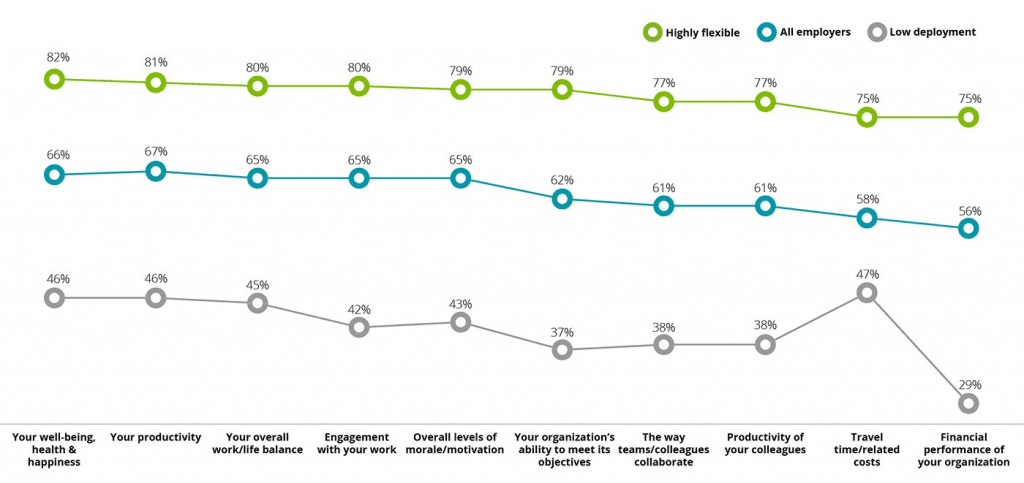
Echoing the thoughts of the May 2013 Times article, how your Millennial employees (and hopefully, future leadership) will turn out, will depend on how you view change.
In fact, the change in human demographics (Millennials) are but one of the key levers of change besides Social, Mobile Technologies, Analytics and Cloud (better known as SMAC) as proposed by change management theorists. Yet, the only constant that should and will remain for enlightened corporations and managers is the propensity to embrace change with the spirit of Awareness, Care and Empathy (ACE).
Whether Millennials, Generation X or the impending Generation Z, each and every generation offers immense opportunities and potential for succeeding in the new economy only if, we are willing to converge on our similarities (instead of being fixated on differences) and see the best from within our people.
Author- Benjamin Lohis an Executive Public Speaking Coach, TEDx Speaker, Author and Professional Speaker on Millennial Matters from Singapore. As the youngest Associate Certified Coach in Singapore and possibly, Asia-Pacific, he has coached over 100 corporate executives and entrepreneurs individually with over 750 hours of direct coaching and trained over 3,000 clients in high impact mass trainings in public speaking, presentation skills and leading the multi-generational workforce and Millennials. His work in entrepreneurship and public speaking has been featured on over 60 occasions on both local and regional media platforms like Channel News Asia (CNA), Vietnam QKTV, BFM Malaysia, Radio Television Hong Kong (RTHK), Straits Times (ST), Business Times (BT) and News938 Live. For more information, please visit http://www.benjaminloh.sg

